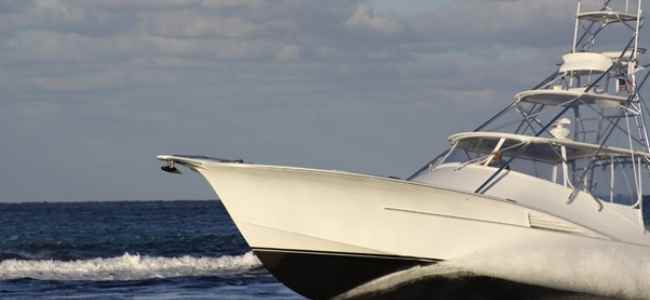Boating is one of life’s greatest pleasures; that’s why it is estimated to be worth over $54 billion by 2027. If you’re looking to take up boating as a new hobby, 2021 could be the ideal year to do so. Buying or renting a boat in spring allows you just enough time to prepare for ultimate summer boating.
If you’ve just bought your first boat, we know you can’t wait to get it out on the water. However, before you brave the high seas, it’s a good idea to get acquainted with a few boating tips for beginners to guarantee some smooth sailing.
In today’s boating guide, we’ll be giving you some priceless boating tips you should know before braving the high waters.
1. Safety First
Safety should take top priority whenever you take our boat out for a spin. The best way to ensure safety during boating is by getting a safety kit to keep onboard regardless of your boat’s size. A complete safety kit should include:
- Duct tape to helps address temporary leaks before you can make actual repairs
- First-aid kit to take care of minor injuries and emergencies
- Flashlight and extra batteries to help you see better at night or in the dark
- Bucket help you get rid of any water that enters the vessel or to store fish you catch
- A whistle to blow the whistle as loud as you can to alert vessels nearby in case you’re stranded
- Mirror to help you signal for help if the whistle doesn’t work
- Fire extinguisher to put out any random fire on the boat
- Rope to rescue anyone who falls overboard
If you don’t find everything in your safety kit, you can buy the missing items separately. Ensure you get everything on the list for ultimate safety. Also, check out other boating safety tips online for some smooth sailing.
2. Mind the Weather
Everyone wants a warm, sunny day for their boating, but this isn’t always the case. Windy and rainy days are as common as sunny days, and they can catch you off guard.
That’s why you need to be on the lookout for signs of storms, even subtle ones. Choppy waves and intermittent gusts of winds are sure signs of an approaching storm. If you spot these signs, you better put off your boating excursion for another day.
3. You Need Proper Life Jackets
Never compromise on the quality of life jackets you buy for your boat. Life jackets do more than prevent you from drowning. They also allow an unconscious person to float face up and prevent hyperthermia should you get stranded at sea for many days.
Law requires that all boats must have a US-coast guard-approved life jacket for all members on board. In some states, children must wear life jackets at all times.
Get a life jacket with pockets and straps if you’re going to do a bit of fishing. That way, you can carry tackles and supplies with ease.
Try on the life jacket before buying it. Ensure the life jacket fits snugly before completing the purchase. Fasten the vest and hold your hands straight over your head, then have someone pull on the top of the arm opening to ensure it fits as it should.
Consider getting inflatable life vests that can turn the wearer face up when drowning. However, note that these types of vests require lots of maintenance and are costly.
There are plenty of life jackets available on the market these days. Make sure you settle for quality ones that serve their purpose.
4. Inspect for Harmful Fumes
Suspicious fumes emanating from anywhere on your boat are definitely worth your attention. Every time you refuel your boat, open all the hatches and sniff out any harmful fumes. If you catch even a slight whiff of fumes, don’t turn on the engine until you get to the bottom of it.
It’s not uncommon for carbon monoxide to fill your boat and knock you and your guests unconscious. Carbon monoxide is a metabolic poison and a potentially fatal gas. Be careful with places where carbon monoxide and other harmful gases may accumulate.
Some of these places include:
- Enclosed spaces
- Canvas enclosures with poor ventilation
- Blocked exhaust outlets
- Nearby boats
Although seemingly harmless, these harmful fumes can be devastating. Make sure you sniff out and eliminate any source of harmful fumes for your safety.
5. Don’t Overload the Boat
It’s never a good idea to overload your boat, regardless of the situation. Make sure you follow your boat’s capacity restriction to keep your boat from tipping off balance. If you overload your board too much, it can capsize right in the middle of the sea.
6. Follow the Right Anchoring Procedures
Having the right anchor is great for a start, but you need to follow the proper anchoring procedures every time you stop your boat. Doing so prevents the wind from dragging your boat or prevents the vessel from drifting. When the tide is high, you might have to drop your anchor deeper in the water about 20 to 30m deep to prevent the tide from lifting the anchor.
If it’s the beginning of winter and you need to store your boat, then you need to know a thing or two about winterizing your boat. Read this article on boat and RV storage to learn more about winterizing your boat.
Keep These Boating Tips at Your Fingertips
The above boating tips should have you ready to brave the high seas without worry. Remember, boating is a skill that takes time to learn, so take it step-by-step. For the most fun, make sure you invite your friends and family for your boating excursions.
For more informative articles, check out the other posts on this site.


